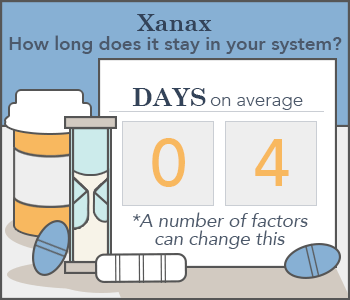Occasional Xanax Use For Sleep
| Improves Sleep | |
| Promotes Relaxation | |
| Speed of Results | |
| Value for Money | |
Rating: 4.5/5 (7 votes cast) | |
I have panic attacks. I have been on.5 mg for about 7 years and a VA doctor just told me I won't get any more, that I was 'addicted'. I took 1mg mg to sleep every night and 0 to 1mg per day for anxiety and it was fine. Now I take Ambien to sleep, so don't need as much Xanax, but need some during the day for anxiety in order to live a full life. How to take Xanax for sleep Basically, yes, there are better options — namely, sleep medications, reducing your stress, and setting up your bedroom for sleep success (sorry, laptop).
Xanax is the brand name for a generic sleep aid called alprazolam. This is a drug in the benzodiazepines group of medicines that is available only through a prescription. It is most frequently prescribed to help to rebalance the chemicals in the brain so that anxiety can become more manageable, but it is also often given to people who need help with their sleep.
Sleep Disorders and Xanax
Sleep disorders are not uncommon among individuals suffering from anxiety or depression, and the use of a drug such as Xanax can help the patient to relax so that it becomes easier to fall asleep and stay sleeping.
This drug is not prescribed to people who occasionally struggle to be able to fall asleep. It is a serious medication that is prescribed when insomnia has become chronic. It is meant to help people to be able to fall asleep as they establish good bedtime habits. The goal is not to use this product forever. Instead, it is meant to help people to receive the rest when they need it most.
Hopefully, during that time, they will learn how to stay restful at night so that they won’t struggle as much once they stop using the medication and start sleeping naturally again.
Who Receives a Xanax Prescription?
Xanax is generally prescribed by physicians in order to help patients with their high levels of anxiety over the short-term. This mild sedative also helps them to achieve the sleep that they need throughout this time, which can also be effective in lowering anxiety levels.
Unlike many other types of anti-anxiety medications, Xanax can help to induce sleep in an individual from the first time that it is used. It is effective enough to assist an individual who has been suffering with insomnia even if he or she has already tried other forms of psychological and physical therapies and remains sleepless.
Not a Long-Term Solution
That said, as effective as Xanax may be over the short-term, it is not designed for prolonged use. This drug, if used over time, can be habit forming and can lead to an addiction. If the drug is used consistently over a period of several weeks, the result can be tolerance issues and unpleasant withdrawal symptoms.
However, if the drug is needed only over a shorter period of time, then this may be a good choice for helping to keep things calm so that better rest can be achieved. The key is to speak with a doctor about the actual use of the drug, so that it can be taken properly and only over an appropriate amount of time.
Xanax For Sleep Every Night
Not a Cure

It is important to note that Xanax does not actually cure the issue that is causing the insomnia, such as anxiety. Instead, it provides a temporary solution that allows the patient to relax and fall asleep. If insomnia is an ongoing problem, it is important that the patient seek additional therapies in order to overcome the cause, since the insomnia will only return with the cessation of the drug, if the problem itself has not yet been resolved.
Low Dose Xanax For Sleep
Tips to Improve Sleep
For some people, medications such as Xanax are the only solution to help them to overcome insomnia for a while. However, there are some practices that can help them to get better sleep both while they use the medication and after they cease its use. These techniques are most effective when maintained over time. They can help to restore balance to a person’s natural sleeping and waking cycles. They include the following:
Occasional Xanax Use For Sleep
- Control light – Use blackout curtains, ban devices with screens from being used in bed, dim lights an hour before bedtime (at which point you stop using those devices like phones, tablets, computers and TVs). This help to encourage melatonin production.
- Have a bedtime routine – Follow a similar winding down routine for a half hour to an hour before bed every night. It may include changing out of your clothes and into whatever you wear (or don’t) when you sleep, washing your face or showering, brushing your teeth and hair, applying any moisturizers or lotions, reading and/or saying prayers or even singing softly.
- Have a bedtime and waking time – Stick to the same bedtime and waking time every day. Every single day. This includes weekends and days off. Once you set your sleeping and waking clock, you will naturally fall asleep and wake up at about the same time every day. This should give you the rest you need without the requirement to sleep in. Sleeping in may feel good at the time but it throws off your natural built-in clock. Instead, give yourself the gift of a restful night every night, not just on weekends.